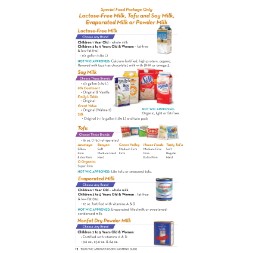

The asset restrictions in House File 3 would mean families who have $2,750 – $4,250 in assets or savings would no longer be eligible for any benefits, which critics say discourages people from growing their savings. There’s brown rice, but no white rice,” Elzinga says. “You can get 100% whole wheat pasta, but not rice noodles. He adds how triggering restrictive eating is for some people. “I know a woman with an eating disorder that’s on SNAP,” Elzinga says. He says that the restrictions don’t take into account food allergies, medical conditions that require a specific diet, religious limitations or cultural preferences. “If you’re living in poverty and using a program-and there’s already so much stigma around SNAP-to then be told, ‘we’re going to police the food that you can get,” is incredibly damaging to people’s mental health,” Elzinga says. With the WIC restrictions, Iowan SNAP recipients wouldn’t be able to buy things like non-whole grains, fresh meat, spices, oil, canned fruits or vegetables and other kitchen staples.

“If you’re pregnant, breastfeeding, postpartum, an infant or child under five, you have very specific nutritional needs,” Lauren Au, a professor of nutrition at the University of California, Davis who researches nutrition policy, tells TIME.Īu adds that SNAP provides “such a small amount of funding for food.” As supplemental nutrition assistance, it’s not designed to be a household’s only source of food, so it shouldn’t be treated as such by the policy. Some experts argue that the WIC diet isn’t fitting for everyone enrolled in SNAP because of the broad range of demographics. The restrictive food list proposed in House File 3 was copied from WIC, which was created to help maternity and early childhood health.


 0 kommentar(er)
0 kommentar(er)
